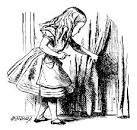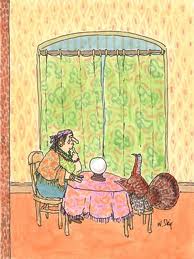
Reading grows curiosity
February 8, 2016
 Children come into the world breathing out question marks but only some retain the habits of exploring, learning, and discovering, as they grow older. Those who do so tend to be smarter, more creative, and more successful. So why are many of us allowing our curiosity to wane?
Children come into the world breathing out question marks but only some retain the habits of exploring, learning, and discovering, as they grow older. Those who do so tend to be smarter, more creative, and more successful. So why are many of us allowing our curiosity to wane?
A partial answer lies in how the Internet, while providing easy access to information, actually hurts the growth of curiosity. True curiosity is the sustained quest for understanding and begets insight and innovation, which is actually at risk in a wired world.
Reading nurtures a child’s curiosity. Curiosity is our greatest search engine and research has shown that curiosity is correlated with creativity, intelligence, improved learning and memory, and problem solving.
Reading feed curiosity—the quest to know and understand. Curiosity is the human capacity to be deeply fascinated. The most productive mind is the one most open to indulging the impulse to daydream, to ponder, and to let your imagination take hold. Reading feeds the appetite for new ideas, beckoning readers to wander with a keen alertness.
Learning happens when curiosity is ignited. Maybe a book’s most important attribute is the degree it encourages curiosity—to know more, to understand more, to feel more.
Curiosity is how we acquire knowledge and it reminds us we are alive.
Curiosity isn’t a gift that keeps on giving. It is a mental muscle that atrophies without regular exercise and a habit that parents, schools and workplaces need to nurture.
“I have no special talents,” said Albert Einstein. “I am only passionately curious.”
Once upon a mind
January 27, 2016

Who am I is a universal question. In response to that question Plato said the unexamined life is not worth living; he believed wonder is the beginning of wisdom and knowledge. Alice, (from Alice in Wonderland) like Plato, wanted to know Who am I, what am I, how should I live my life? “Who in […]
Traditional Toys are better for language development than gadgets.
December 31, 2015

A new Study http://archpedi.jamanetwork.com/article.aspx?articleid=2478386 builds on a growing body of research suggesting that electronic toys and e-books can make parents less likely to have the most meaningful kinds of verbal exchanges with their children. The findings raise questions about whether electronic playthings make it less likely that babies will engage in the verbal give-and-take with […]
Reading aloud and talking to children makes for a stronger brain.
December 18, 2015

Early childhood experiences have long lasting consequences for children’s long-term social, emotional and cognitive development. Early childhood experiences cast a lifelong shadow. Education does not begin at school. It certainly does not begin at kindergarten. It actually begins at birth. Brains develop biologically. Major brain stimulation occurs in the first months and first years of […]
Thanksgiving every day of the year.
November 22, 2015

I can’t help thinking of William Steig at Thanksgiving. In addition to the fact that he was born in the month of November, I thank him year round for igniting my passion for children’s literature. His books showed me how extraordinary a book for children could be—with language that soars, pictures that captivate, and stories […]

